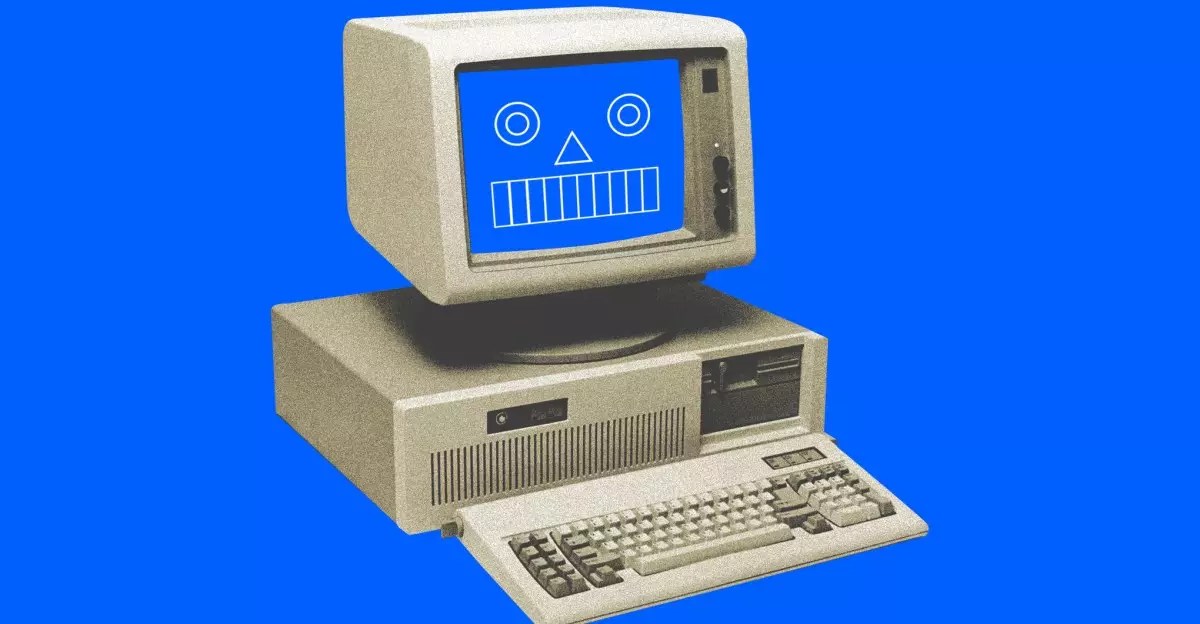Artificial Intelligence (AI) startups are fiercely competing to establish themselves as the predominant AI tool for the next generation. At the forefront of this contest are two prominent players: OpenAI and Anthropic. Both companies have recently unveiled significant initiatives focusing on higher education, demonstrating their commitment to change the educational landscape. This escalating rivalry reveals not only the innovative potential within AI tools but also highlights the strategic importance of academia in shaping the future workforce adept in AI technologies.
Milestones in Education: Anthropic Takes a Bold Step
Recently, Anthropic introduced its innovative “Claude for Education,” a specialized version of its chatbot explicitly designed for universities. Unlike conventional AI tools that simply provide answers, Claude aims to enhance students’ critical thinking abilities. By adopting a Socratic questioning approach, the chatbot plans to challenge students to think deeply about their problems. Queries like “How would you approach this?” and “What evidence supports your conclusion?” serve as prompts for students to engage critically with their learning material, rather than merely outsourcing their homework to an AI.
This initiative is underpinned by strategic partnerships with leading institutions such as Northeastern University and the London School of Economics, pointing to Anthropic’s ambition to create a robust framework for integrating AI into university curricula. According to Larry Kramer, President and Vice-Chancellor of LSE, the company’s vision aligns with their social science expertise, reinforcing that AI can profoundly transform both educational methodologies and societal structures.
OpenAI’s Established Presence in Academia
While Anthropic is embarking on its journey in the education sector, OpenAI has been making strides for some time. The introduction of ChatGPT Edu in May 2024 marked OpenAI’s significant step into higher education, backed by a network of various colleges. More than just a tool, ChatGPT Edu aims to revolutionize educational experiences for college students who are increasingly grappling with the demands of a rapidly evolving job market shaped by artificial intelligence.
OpenAI’s initiatives include the formation of the NextGenAI Consortium, a substantial investment of $50 million to propel AI research across 15 colleges. This shows not only a commitment to partnership but also a clear understanding of the long-term impact that AI literacy will have on students’ preparedness for future challenges. In a recent announcement, OpenAI made ChatGPT Plus available for free to all college students in the U.S. and Canada until May, a move that underscores their recognition of the pressing need for AI tools during exams and other academic pressures.
The Implications of AI on Educational Paradigms
The simultaneous rollout of educational initiatives by both Anthropic and OpenAI emphasizes the urgent need for AI integration in academic contexts. This trend illustrates a pivotal moment in the evolution of educational tools and suggests a transformative approach to how students learn and interact with technology. In a world where academic pressures are mounting, these AI tools are positioned to help students manage not only their studies but also their mental health.
The stakes are high, as the implications of these advancements extend beyond academia into wider society. If students can harness AI tools to enhance their learning and develop critical abilities, the potential for a more informed and innovative future workforce becomes attainable. The historic importance of this competition cannot be overstated, as it ultimately determines which AI tool becomes synonymous with the learning experience of the next generation.
Looking Ahead: AI’s Role in Shaping Future Innovators
As AI tools gain ground in educational institutions, they also play a crucial role in shaping the innovators and problem solvers of tomorrow. With the rapid pace of technological change, fostering an environment where students can utilize AI responsibly and effectively is crucial. The priority must shift towards cultivating not merely consumerists of technology but creators and critical thinkers who can navigate an AI-driven world.
In this competitive landscape, the narrative of education is being rewritten. Both OpenAI and Anthropic understand that by embedding themselves in the fabric of academic life, they can influence how future generations approach technology and learning. Such shifts in educational paradigms promise to enhance the overall quality of education while leveraging the efficiencies of AI — setting the stage for a future rich in knowledge and opportunity.


Leave a Reply